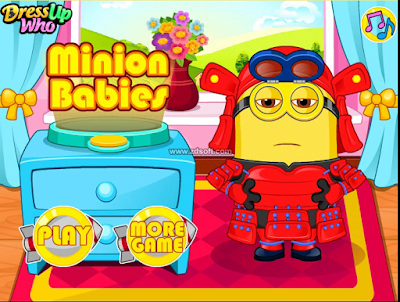A Surprising New Study On How Video Games Impact Children !
Parents tend to approach video games like junk food: games are fine in moderation but ultimately they are an evil temptation that’s more bad than good. But according to an article published in Pediatrics: The Official Journal Of The American Academy of Pediatrics, we may be fundamentally mistaken in our thinking about how video games impact behavior.
Author Andrew K. Przybylski, Phd., conducted a study of “2436 male and 2463 female young people, ranging in age from 10 to 15 years.” Entitled “Electronic Gaming and Psychosocial Adjustment,” Dr. Przybylski’s study looked at how different amounts of gameplay impact gamers, “the net effects that different levels of gameplay have on children’s psychosocial development.”
What he found was surprising. It fills significant gaps in psychosocial gaming research and may change the way we think about gaming’s impact in general.
The mainstream view of gaming has become less curmudgeonly in recent years–we no longer think of games as a horrible evil demon trying to corrupt our children. However, most parents still see games as a negative influence on their children. They think it needs to be limited and restricted. They think it can lead to ‘sins’ like sloth and apathy. Of course, I use the word ‘sins’ with some cynicism. I want to point out that when it comes to our conceptions of developmental norms, ‘healthy’ is often code for ‘morally preferable.’
After all, what do we want our children to develop into? And how much influence do parents really have? In developmental psychology, there may be inadvertent political agendas underlying many accepted theories. What we consider ‘healthy’ seems to be the acculturated development of personality traits that resonate in accordance with a particular view of normalcy. I have no objection to the idea that we come to a cultural agreement on traits that we consider to be beneficial to the collective. Creating norms and taboos that benefit a social community is the very work of ‘civilization.’ However, I do wonder if it is honest to use a word like ‘healthy,’ which implies an empirical truth rather than a flexible choice. Let’s not forget that these are collective agreements.
Is gaming healthy? It depends on how we collectively define ‘health.’ Dr. Przybylski’s study uses a widely accepted SDQ (strength and difficulty questionnaire) method of measuring “internalizing and externalizing problems,” “prosocial behavior,” and “life satisfaction.” He found that in some cases, gaming is beneficial. “Compared with non-players, children who typically invest less than one-third of their daily free time showed higher levels of prosocial behavior and life satisfaction and lower levels of conduct problems, hyperactivity, peer problems, and emotional symptoms.”
I have written a lot about the many studies that show that gaming can impact children in ways that may be in the best interest of society. I have pointed most often to the way game based learning nurtures meta-cognitive skills (the ability to think about your own thinking). Society as a whole values meta-cognitive skills and therefore considers development of these skills to be ‘healthy.’ But that does not necessarily mean that gaming is like eating vegetables. That is, it is not proactively nutritious. Dr. Przybylski’s findings reiterate this point. He is careful to remind readers that “the small positive effects observed for low levels of regular electronic play do not support the position that games provide a universal solution to the challenges of development and modern life.”












 Donald Duck, Mickey Mouse, Goofy very fun 2015 !
Donald Duck, Mickey Mouse, Goofy very fun 2015 !














